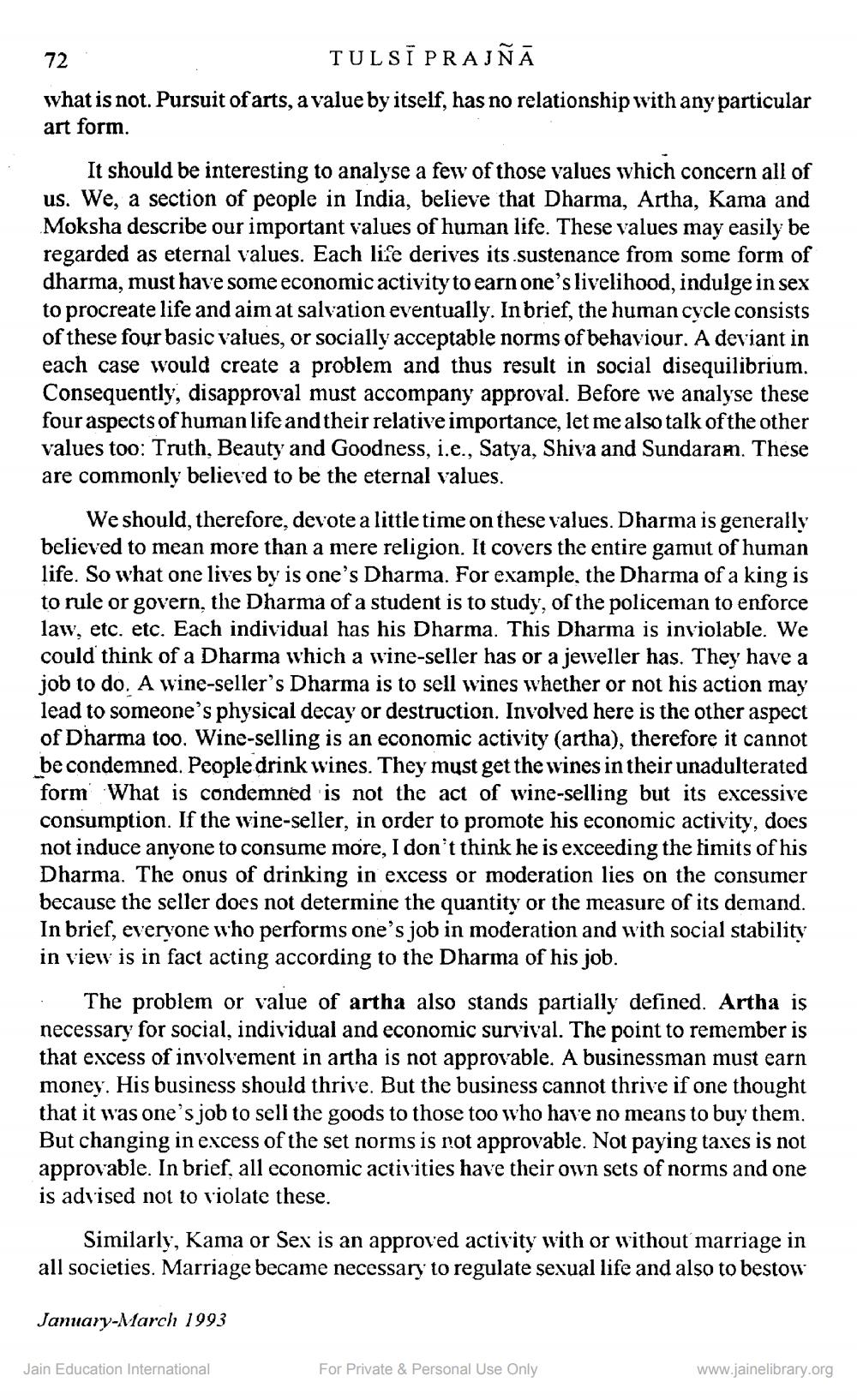________________
72
TULSĪ PRAIÑĀ what is not. Pursuit of arts, a value by itself, has no relationship with any particular art form.
It should be interesting to analyse a few of those values which concern all of us. We, a section of people in India, believe that Dharma, Artha, Kama and Moksha describe our important values of human life. These values may easily be regarded as eternal values. Each lise derives its sustenance from some form of dharma, must have some economic activity to earn one's livelihood, indulge in sex to procreate life and aim at salvation eventually. In brief, the human cycle consists of these four basic values, or socially acceptable norms of behaviour. A deviant in each case would create a problem and thus result in social disequilibrium. Consequently, disapproval must accompany approval. Before we analyse these four aspects of human life and their relative importance, let me also talk of the other values too: Truth, Beauty and Goodness, i.e., Satya, Shiva and Sundaram. These are commonly believed to be the eternal values.
We should therefore, devote a little time on these values. Dharma is generally believed to mean more than a mere religion. It covers the entire gamut of human life. So what one lives by is one's Dharma. For example, the Dharma of a king is to rule or govern, the Dharma of a student is to study, of the policeman to enforce law, etc. etc. Each individual has his Dharma. This Dharma is inviolable. We could think of a Dharma which a wine-seller has or a jeweller has. They have a
. A wine-seller's Dharma is to sell wines whether or not his action may lead to someone's physical decay or destruction. Involved here is the other aspect of Dharma too. Wine-selling is an economic activity (artha), therefore it cannot be condemned. People drink wines. They must get the wines in their unadulterated form What is condemned is not the act of wine-selling but its excessive consumption. If the wine-seller, in order to promote his economic activity, does not induce anyone to consume more, I don't think he is exceeding the limits of his Dharma. The onus of drinking in excess or moderation lies on the consumer because the seller does not determine the quantity or the measure of its demand. In brief, everyone who performs one's job in moderation and with social stability in view is in fact acting according to the Dharma of his job.
The problem or value of artha also stands partially defined. Artha is necessary for social, individual and economic survival. The point to remember is that excess of involvement in artha is not approvable. A businessman must earn money. His business should thrive. But the business cannot thrive if one thought that it was one's job to sell the goods to those too who have no means to buy them. But changing in excess of the set norms is not approvable. Not paying taxes is not approvable. In brief, all economic activities have their own sets of norms and one is advised not to violate these.
Similarly, Kama or Sex is an approved activity with or without marriage in all societies. Marriage became necessary to regulate sexual life and also to bestow
January-March 1993
Jain Education International
For Private & Personal Use Only
www.jainelibrary.org




